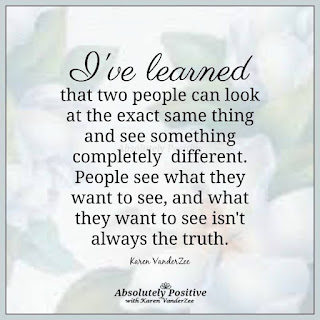Solving Problems 101: Other People’s Problems
One
of the most essential lessons that recovery teaches us is this: We are not
responsible for the problems of other people, nor are we responsible for fixing
them (other people or their problems).
So
many codependents are masters of the fine art of caretaking and that makes
detachment from others and their issues especially difficult. Even after years
of recovery, we may still feel tinges of guilt when others bring us their
problems and we aren’t able to do anything. That’s OK. We can allow ourselves
to feel the guilt (which is really about us wanting to boost our self-esteem by
being needed), and we can let go of it.
In
the past, we wanted to fix everything for everyone for all of the wrong
reasons. It was all about us and our need to be loved and needed. As we learn
to love ourselves better, the urge to win the love of others through caretaking
begins to subside. But we may still be faced with lingering doubts about
whether or not we are doing enough when others we love are faced with troubles.
Sometimes
I wonder if I’ve gone from being overly-concerned to overly aloof when it comes
to the problems of others. We certainly don’t want to be insensitive. But we
also don’t want to cross over proper boundaries, so here are some good
guidelines.
First,
we have to admit that someone is bringing us “their” problem, which means the
problem is not ours to own or fix. Second we need to know that there are only
two things we can do to help the person: 1) validate them by listening intently
to them and acknowledging that their feelings are important; and 2) give them
and their problems to God and allow God to do for them what we cannot do.
Next,
we need to refrain from offering help unless it is directly asked for by the
other person—the one who actually has the problem. This is an area that can
become sticky. Many of us were used to jumping right in and volunteering when
we were never asked to help with or to fix anything. We also need to be careful
not to get involved because a friend or relative says that someone else (other
than him or herself) needs help. No one can know for sure that someone else
needs help. Only the person with the problem can know that and if he or she
wants help, they will ask for it.
Sometimes
it doesn’t feel like enough to turn someone over to our Higher Power. Maybe
that’s because so many of us have been so accustomed to playing God for so many
years that we still feel even God can’t do as good a job as we can. But in
recovery, we know better. We are not God and we cannot solve or fix anyone’s
problem all by ourselves. We can’t even fix our own problems by ourselves. We
need a Higher Power. So let’s work on accepting that fact.
No
one can help a friend or family member better than God. So allow yourself to
validate others by listening well to them and then allow God to do the rest.




Comments
Post a Comment